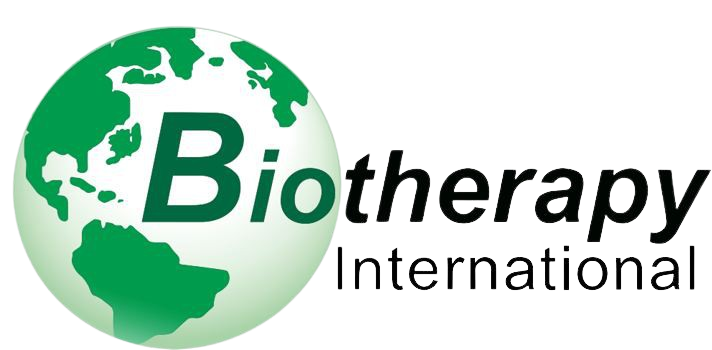Overall, doctors have classified more than 400 different neurological diseases — that is, conditions that affect the brain, the spinal cord or the peripheral nervous system.
Types of Neurological Diseases
Neurological disorders are usually classified by the way in which symptoms present and develop, rather than by the organ or tissue they affect.
Some of the most common categories used include:
- Sudden onset disorders. These usually follow an acute event like cerebral bleeding, stroke due obstruction of an essential blood vessel in the brain or an accident or injury, like traumatic brain injury or spinal cord injury.
- Intermittent disorders. These are disorders that develop as “attacks” or as frequent flare-ups. Their frequency is usually unpredictable. This type includes multiple sclerosis (MS) and most seizure-like disorders.
- Progressive conditions. These are conditions that usually begin with minor symptoms but then continue towards irreversible deterioration. Examples include Alzheimer’s disease or Amyotrophic lateral sclerosis (ALS),
- Stable conditions. These usually follow a major trauma or appear from birth. They do not worsen but are also usually regarded as incurable. Cerebral palsy is a classic example.
Symptoms of Neurological Diseases
The specific symptoms of neurological disorders can vary wildly because of the different functions that the nervous system has in the human body. However, these symptoms frequently fall into one of the following categories:
- Loss of coordination, especially in the extremities
- Loss of movement
- Loss of muscle strength
- Neuropathic pain, usually coming in flare-ups
- Loss of cognitive abilities or memory
- Seizures
- Disorientation
Some of these symptoms are directly caused by progressive damage to the myelin sheath, which protects different types of nerves in the central nervous system or around the body. This phenomenon is known as demyelination.
In turn, the mechanisms that set off demyelination vary depending on the disorder and are sometimes not fully understood. However, in many cases, they appear to have a strong link to chronic inflammation, caused by patient’s own immune system.
Management of Neurological Diseases
Traditionally, the management of neuroinflammatory disorders is geared towards reducing the frequency of flare-ups, or on slowing down the progression of the disease. This is usually accomplished by anti-inflammatory or immune regulating treatments.
In the case of degenerative disorders, physicians also traditionally place a strong emphasis on improving quality of life, especially for patients suffering from chronic pain. In the case of stable or sudden-onset conditions, long-term rehabilitation and most important physical therapy can help the patient regain some of the coordination or mobility lost, or at least train the patient to maintain quality of life despite the untreatable limitation.
Treatment of Neurological Diseases
Although usually considered irreversible, the last few years have seen the development of new and promising treatment courses that may help a patient achieve permanent remission. Biotherapy International is currently exploring two distinct, yet equally fascinating treatment routes: the use of stem cells or Deep Transmagnetic Stimulation.
Mesenchymal Stem Cells for Neurological Diseases
For degenerative diseases, especially if linked to ageing or progressive demyelination, the use of mesenchymal stromal cells (MSCs) is showing interesting results.
Treatments based on MSCs have the ability to induce anti-inflammatory effects and to regulate immunity. This would directly cut off the mechanism responsible for the progressive loss of myelin that is characteristic of conditions such as MS or ALS.
MSCs can be used to regenerate different types of neural stem cells, which can then target specific aspects of different neurological conditions.
For example, MSCs can be turned into oligodendrocytes — that is, the type of cell responsible for myelin production. For patients with Parkinson’s disease, MSCs can be used to regenerate astrocytes instead. These are the cells that secrete dopamine, the same compound that is usually prescribed to manage the disease. Alternatively, the MSCs can be exposed to different microRNAs and turned into other types of motor neurons.
In theory, a similar process can be used to regenerate other cells that could be used against Parkinson’s disease or autism spectrum disorder.
This makes a lot of sense from an experimental, scientific, and rational point of view. It is also supported by pilot clinical studies.

Deep Transmagnetic Stimulation
This is a technique that uses low-energy acoustic shockwaves in order to stimulate certain types of tissue deep within the body.Traditionally, DTS and low energy laser light therapy were used to directly stimulate myelin production, in hopes of reversing the demyelination process. Nowadays, Biotherapy International is also exploring the use of DTS as a complement to MSC-based treatment: the shockwaves can improve the way in which stromal cells are targeted, mobilizing growth factors without the need to extract additional bone marrow.
This has already been approved in Israel, Europe, and the United States to treat:
- Alzheimer’s Disease
- Autism and Asperger’s Disorder
- Bipolar Depression, Schizophrenia – Negative Symptoms
- Chronic diabetic pain
- Major Depression (with Antidepressants and as mono-therapy)
- Multiple Sclerosis (MSC)
- Obsessive-Compulsive Disorder (OCD)
- Parkinson Disease (with anti-parkinsonian medications)
- Post-Traumatic Stress Disorder (PTSD)
- Stroke

